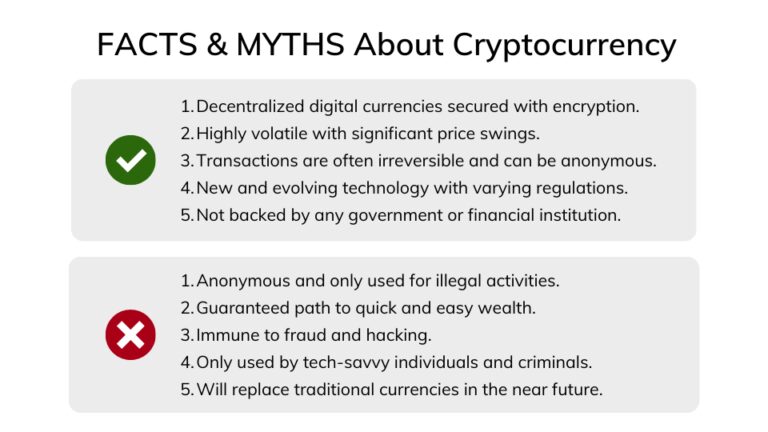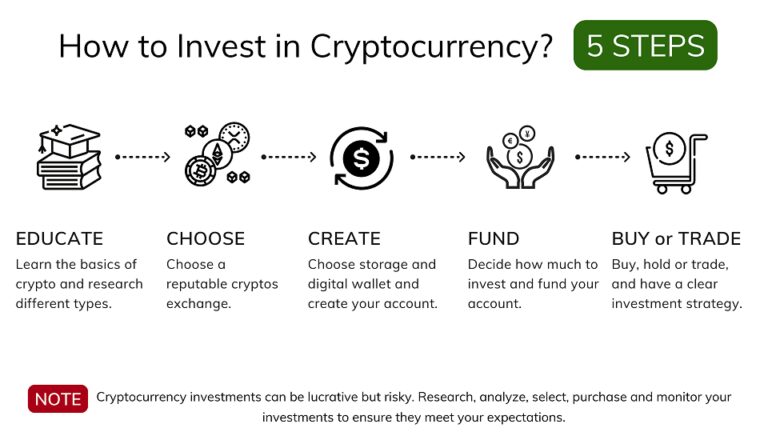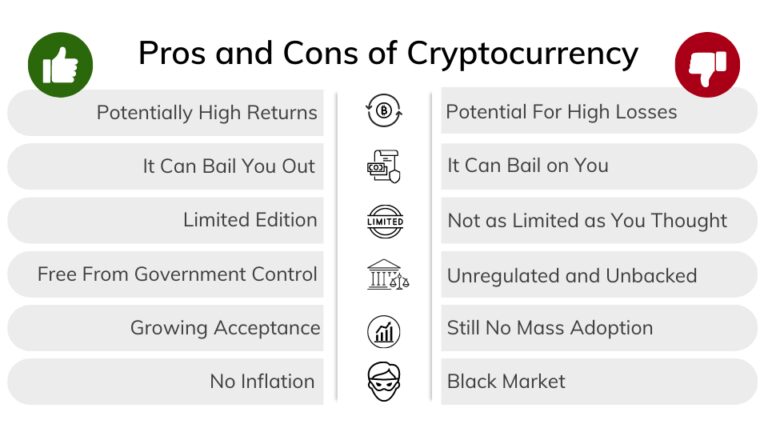Dive into our comprehensive 2024 guide that provides a clear understanding of the relationship between crypto wallets and privacy. Here, we explore effective strategies and best practices to secure your digital currencies while ensuring your anonymity. A must-read for anyone interested in the world of cryptocurrency!

As we venture into the realm of cryptocurrencies, it’s important to have a solid grasp on the basic concepts. One such foundational element is the crypto wallet. Understanding what a crypto wallet is, how it works, and the different types available can go a long way in ensuring a smooth and secure cryptocurrency experience.
A cryptocurrency wallet, or a crypto wallet, is a digital wallet where you can store, send, and receive cryptocurrencies securely. Think of it as a bank account for your digital currencies, holding the private keys that prove your ownership of the cryptocurrencies it contains.
The functioning of a crypto wallet revolves around the principles of cryptography. It generates pairs of public and private cryptographic keys. The public key serves as your wallet address, to which others can send cryptocurrencies. On the other hand, the private key is a secret code that verifies your ownership and gives you access to your cryptocurrencies.
There are two primary types of crypto wallets: hot and cold. Hot wallets are connected to the internet and provide easy access to your cryptocurrencies, making them suitable for regular transactions. They include web wallets, mobile wallets, and desktop wallets. However, being online makes them vulnerable to potential security threats.
On the flip side, cold wallets are offline wallets, adding an extra layer of security by being immune to online hacks. They are ideal for long-term storage of your cryptocurrencies and include hardware wallets and paper wallets.
Choosing the best crypto wallet heavily depends on your needs and the level of security you desire. For further guidance, check out our comprehensive guide on Discover the Best Crypto Wallets.
As crypto wallets continue to grow in popularity, so too do concerns about privacy and security. One of the most significant issues in this area is the risk of privacy breaches. Although blockchain networks provide a certain level of anonymity, the type of wallet you choose and how you manage it can potentially expose sensitive data.
Privacy breaches can occur in several ways when using crypto wallets. These include:
Privacy is more than just a personal preference; it’s a necessity for certain crypto transactions. For instance, businesses may want to keep their transaction details private to maintain a competitive edge. Similarly, individuals may want to hide their wealth or transaction history from potential attackers. Moreover, privacy is crucial in preserving financial sovereignty and creating a truly decentralised financial system.
Despite these risks, you don’t have to ditch crypto wallets. Instead, understanding the privacy features and security measures of different wallets can help you make an informed decision. If you’re curious about how one wallet managed to address these issues, read about How Trust Wallet Became a Crypto Choice.

The incorporation of robust privacy features in crypto wallets ensures that your digital assets and transactions remain confidential. We’ll explore the privacy features offered by some of the popular crypto wallets.
Coinbase Wallet is renowned for its proactive approach to user privacy. Their robust security framework ensures the safeguarding of user data. The wallet encrypts your private keys and stores them on your device, ensuring you have complete control over your crypto assets. Coinbase also utilizes Secure Enclave technology, alongside biometric authentication, for enhanced protection. For privacy-focused individuals, Coinbase offers a “Privacy shield” feature, which helps mask transaction-related information.
As a hardware wallet, Ledger Nano is inherently more private than its online counterparts. The device is designed to keep your private keys offline, away from potential online threats. Ledger makes use of BOLOS, a unique, highly-secure operating system that ensures your private keys never leave the device. Additionally, Ledger offers the option to create multiple wallets, adding to your privacy by making it harder for third-party observers to track your transactions. You can learn more about this wallet in our guide, “Pros and Cons of Trezor Hardware Wallets.”
Trezor One, another renowned hardware wallet, provides excellent privacy features. It also keeps your private keys offline and uses a secure PIN code for authentication. Plus, Trezor integrates with Tor to provide added privacy and allows you to manage multiple, isolated wallets using its passphrase feature.
Exodus wallet employs various advanced security protocols for data protection. The wallet uses a 12-word passphrase that encrypts and stores your private keys on your device, making it nearly impossible for malicious actors to gain access. Furthermore, Exodus collects minimal personal data and does not keep any connection logs, which is a boon for those valuing privacy.
Trust Wallet has built a strong reputation for its focus on user privacy. It provides users with full control over their private keys, which are stored locally on the device. Trust Wallet also incorporates additional security measures such as biometric authentication and auto-lock mechanisms. The wallet does not collect personal data, ensuring your privacy is intact.
MetaMask is a browser-based wallet that offers a private mode feature. This feature ensures that third-party websites cannot automatically access your wallet information. Also, MetaMask uses HD encryption to secure your wallet and transaction data.
Binance Wallet prioritizes user privacy and security, storing private keys locally on your device and employing Secure Sockets Layer (SSL) encryption for safe data transmission. Besides, Binance allows you to create a “Withdrawal Whitelist,” ensuring that funds can only be transferred to pre-approved addresses.
Atomic Wallet is known for its emphasis on privacy. There is no need for registration or verification, which ensures anonymity. Plus, Atomic Wallet provides you with a 12-word mnemonic phrase, which forms the basis of your private key security. You receive full control over your private keys, which can contribute to enhanced privacy.

Embarking on your cryptocurrency journey means tackling privacy head-on. Without adequate measures, your hefty bitcoin collection might turn into a playground for hackers. Your privacy isn’t a bonus in the world of cryptocurrency—it’s a necessity. Hence, let’s dive into the techniques that will help maintain your privacy while using Crypto Wallets.
Keeping your crypto assets secure and your identity hidden is an art, and it heavily relies on your habits. Here are a few best practices:
If you are dealing with cryptocurrencies, a Virtual Private Network (VPN) might be your new best friend. It’s the superhero cape that can make you invisible in the online space. The VPN serves as an encrypted tunnel between your device and the server, making it difficult for prying eyes to track your online activities.
Using a VPN while transacting in cryptocurrencies adds an extra layer of privacy, concealing your physical location and IP address. This helps you to stay anonymous and secure, protecting your assets from being linked to your real-world identity. However, not all VPNs are created equal. Consider the VPN’s jurisdiction, logging policies, and leak protection when choosing one to use.
The privacy journey in the world of cryptocurrencies can be a challenging path to tread. It requires you to be in constant command of your activities and exercise the best privacy practices. No one can protect your privacy better than you. However, when armed with the right tools and knowledge, you can make your cryptocurrency journey private, secure, and enjoyable.
To delve deeper into this topic, check out an expert’s perspective on one of the most popular crypto wallets in the blog post “Why Coinbase Wallet is an Expert’s Choice.

While it’s easy to explain the theory of privacy and security in crypto wallets, a lot can be learned from actual case studies where privacy has been breached, causing real implications for the users. In this section, we’ll take a look at two such instances involving Coinbase Wallet and Ledger Nano.
In late 2020, Coinbase, a leading crypto wallet provider, experienced a privacy breach that caused significant concerns among its vast user base. In this case, one of Coinbase’s third-party service providers had been targeted by a sophisticated hacking attack, resulting in unauthorized access to a portion of Coinbase’s user data.
Another notable case study involves Ledger Nano, renowned for its hardware wallets. The incident, occurring in 2020, saw detailed customer data dumped on a well-known hacking forum.
These case studies underline the necessity for crypto wallet users to maintain constant vigilance towards privacy and security. A proactive approach to privacy and security can lend a substantial layer of protection to digital assets, particularly in an era marked by an increasing rate of cyber threats. The key takeaway from these events? Always put privacy first, and never underestimate the resourcefulness of cybercriminals.

